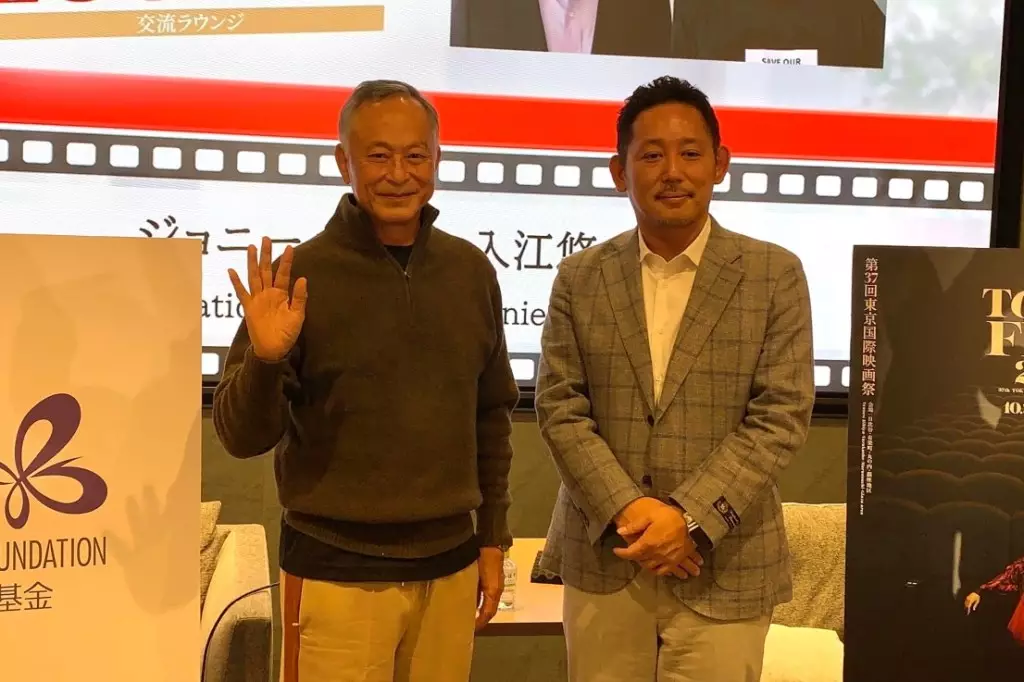Renowned Hong Kong filmmaker Johnnie To recently engaged in a thought-provoking dialogue with Japanese director Yu Irie during the Tokyo International Film Festival (TIFF). This discussion not only explored To’s extensive career in cinema but also brought forth poignant reflections on the shifting landscape of Hong Kong filmmaking. As a respected figure in the industry, To’s insights into his unique shooting style and the evolving challenges faced by today’s filmmakers provide a window into both his artistic vision and the broader cultural context.
To’s narrative emphasizes his unconventional approach to filmmaking, which he describes as free-spirited and improvisational. Unlike many directors who rely heavily on detailed screenplays, To often embarks on projects without a formal script, revealing a philosophy that values spontaneity over rigid structure. He explained, “Creating a proper screenplay before you start shooting means that the movie is already completed. I wouldn’t be able to do my best shoot.” This reveals a creative mindset where the essence of a film is developed organically through the act of filming itself, allowing To to explore narratives in real time.
Delving deeper, To elaborated on how this method influences his actors. He stated that around a third of the way through filming, the cast would usually begin to grasp what he envisions for the project. This method, however, comes with its caveats. To himself admitted, “It’s probably not the best style of filmmaking. I wouldn’t recommend it to young filmmakers.” This acknowledgment showcases To’s humility and serves as a reminder that while creativity can flourish without constraints, established methodologies often yield dependable results especially for emerging artists.
In an era where instant collaboration and global networking have transformed the filmmaking landscape, To’s insight into shooting multiple projects simultaneously illustrates a unique adaptability. He shared experiences of producing two or three films at once, blending commercial ambition with personal storytelling. Such a dual approach not only diversifies creative output but also offers filmmakers a safety net during financially challenging periods. For instance, he explained how creating other films helped fund productions, such as his crime drama “Sparrow,” which faced prolonged development struggles.
A compelling point raised during the conversation was the current climate of censorship affecting filmmakers in Hong Kong. Acknowledging the increased restrictions imposed by authorities, To candidly reflected on the tightening grip of censorship: “When it comes to expression and execution, there have been some regulations introduced in Hong Kong.” His assessment underscores the reality many filmmakers face, aiming to balance artistic expression with the demands of prevailing political conditions. He recounted instances where films at local festivals were altered due to scrutiny, thereby emphasizing the challenges of self-expression within constrained environments.
For aspiring filmmakers, To emphasized resilience in the face of adversity. He advised, “If you can’t create the film in Hong Kong, make it in Singapore, Malaysia, Taiwan, or even here in Japan.” His words inspire a more global perspective, encouraging talents to seek creative avenues beyond their immediate geography. This adaptability reflects the resilience and determination necessary in today’s rapidly changing film industry.
To also highlighted a critical need for investment in the Hong Kong film sector. He articulated a stark understanding of the resources required for burgeoning filmmakers to thrive: “I’m going to be 70 [years old] soon… The situation has changed, the times have changed.” This call for investment looks toward a future where young filmmakers can flourish and evolve within a supportive framework, rather than struggling against a backdrop of uncertainty.
As To continued to share his wisdom, one could sense a deep love and concern for the industry he has shaped over decades. His experience and insights present a dual narrative: as a pioneer of the past and an advocate for the future of filmmaking in Hong Kong. The TIFF event, through its focus on such important dialogues, shines a light on a critical need for recognition, understanding, and mentorship in an industry facing unprecedented challenges.
In summation, the exchange between Johnnie To and Yu Irie not only revisits a rich legacy of cinema but also challenges future generations to navigate their creative expressions with intelligence and adaptability. In a world increasingly shaped by cultural dynamics, To’s wisdom serves as a guiding light for aspiring filmmakers worldwide, echoing the sentiment that creativity knows no bounds, and true artists will always find a way to tell their stories.

Leave a Reply